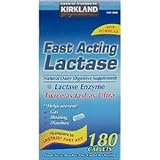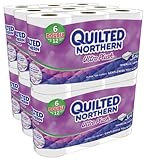Jarrow Formulas Coconut Oil 100% Organic, Extra Virgin, 32 Ounce
Product Description

Product Profile
Traditionally used in Asian cuisine, coconut oil has experienced a renaissance in the modern kitchen. Its stability to both heat and oxygen makes it versatile for many cooking and baking purposes. In fact, vegan recipes for baked-goods often rely on coconut oil for its functional characteristics. And the extra-virgin variety, in particular, is valued for imparting a delicate coconut flavor. In addition to its culinary attributes, coconut oil contributes to a healthy diet, primarily via its medium chain triglyceride (MCT) content. Coconut oil contains over 50% of its fat content as MCT. But what makes MCT a “good” fat?
Distinguishing Features:
- Organic Coconut Oil
- Only non-GMO coconuts used
- Source of MCT
- 100% unrefined and expeller pressed
- Solvent-free processing

Fat Metabolism: Length Matters
Although MCT are technically composed of “saturated” fatty acids, their shorter chain-length causes the body to handle them differently from the long chain triglycerides (LCT) typically found in food. Unlike LCT, MCT do not require the intestinal lymphatic system or bile salts for intestinal absorption, but instead enter the body via the portal system. Their short stature also makes them a readily available cellular energy source via ketone bodies. MCT are abundant in breast milk and have long been valued as a source of fuel (i. e. calories) that is efficiently absorbed and metabolized in adults.
Clinically, MCT are often given to those who cannot absorb conventional long chain fatty acids. Yet it should be kept in mind that MCT do not contain essential fatty acids, and therefore are normally only substituted for 50-70% of dietary fat. However, some evidence suggests that the absorption of long chain triglycerides may be improved if combined with MCT.

Coconut Fats And The Heart
We owe some understanding of the effects of MCT to the citizens of Sri Lanka. In Sri Lanka, a significant amount of dietary fat consists of MCT from coconut oil, and data indicate that the citizens of Sri Lanka score particularly high in the area of heart-health. This realization led nutritional and medical researchers to look at the effects of coconut oil MCT in more depth.
Surprisingly, feeding MCT to rats resulted in animals with lower body weights and excellent survival rates, effects that tend to be the exact opposite of those typically associated with saturated fat. This is important because it’s well known that a healthy body weight is directly correlated with heart and artery function, particularly as we age. Furthermore, in those receiving coconut MCT because they are undernourished or possess lipid absorption/metabolism defects, MCT have been shown to augment energy generation in the heart. And in fact, current research evidences the notion that suboptimal heart function may be associated with heart-energy deficiency.
These statements have not been evaluated by the Food and Drug Administration. This product is not intended to diagnose, treat, cure, or prevent any disease.
Amazon.com
Coconut oil has been traditionally used in Asian cuisine as cooking oil, as well as for imparting a delicious flavor characteristic of coconuts. In addition to its culinary contributions, coconut oil also contributes toward a healthy diet, primarily due to its medium chain triglyceride(s) (MCT) content. Coconut oil contains over 50 percent of its fat content as MCT.

Provides an optimum source of healthy medium chain triglycerides.

Made with coconut oil from the fresh, flesh of organic non-GMO coconut palm fruit. View larger.


MCT Metabolism
From a nutritional standpoint, MCT have traditionally been regarded as biologically inert substances, merely serving as a source of fuel (i.e. calories) that is more efficiently metabolized compared with long chain triglycerides (LCT) found in typical food oils. This quality of MCT has been shown to offer benefits depending on the health situation. Unlike LCT, MCT do not require the intestinal lymphatic system or bile salts for absorption, and hence they are referred to as "quick fuel."
For this reason, MCT are often given to people who have difficulty absorbing conventional long chain fatty acids. MCT do not contain essential fatty acids, and therefore they are normally only substituted for up to 50-70 percent of dietary fat. However, some evidence suggests that the absorption of long chain triglycerides may be improved if combined with MCT. MCT are metabolized primarily in the liver. The safety of MCT consumption in humans is not a concern, as several clinical trials have shown no adverse effect from levels of 1 gram per kilogram of body weight per day.
Heart Function
We owe a portion of our understanding of the effects of MCT on the heart to the citizens of Sri Lanka. In Sri Lanka, a significant amount of dietary fat consists of MCT from coconut oil, and data indicate that the citizens of Sri Lanka score particularly high in the area of heart-health. This realization led nutritional and medical researchers to look at the effects of coconut oil MCT in more depth.
Feeding MCT to rats resulted in animals with lower body weights, a smaller amount of fat deposits and excellent survival rates.* Maintenance of a healthy body weight supports heart and artery function as we age. MCT consumption is also associated with healthy levels of serum and liver cholesterol within a normal range.* Furthermore, in a double-blind study, 1.7 g of MCT daily at breakfast significantly promoted healthy cholesterol levels within a normal range compared to that of the LCT group at 8 weeks.* Other studies have shown positive effects on triglycerides, within a normal range.*
MCT have physical and metabolic properties that are distinct from those of long-chain fatty acids, making them a readily available cellular energy source.* These properties have been used advantageously in clinics for more than 50 years in people who are either undernourished or possess lipid absorption and long-chain fatty acid oxidation defects. In this latter contingent, nutritional interventions with MCT have been shown to promote healthy heart function.* Current research supports the notion that suboptimal heart function is associated with heart-energy deficiency, and that MCT can be helpful in providing support.*
Healthy Body Mass
Some research suggests that MCT may support metabolic rate and energy expenditures in the body when substituted in the diet for other types of fat.* MCT may induce satiety, leading to decreased consumption of calories.* Increased metabolic rate and decreased caloric intake may lead to a decrease in body fat. MCT contain 6 to 8.5 kcal per gram.
In one study conducted in a group of 40 subjects, randomized into 2 test groups, MCT or corn oil was administered as part of daily food intake for 90 days. The MCT group showed a significant reduction in body weight. In a double-blind crossover study, subjects were asked to keep their usual lifestyle, including diet and physical activity while consuming MCT as part of their diet. The results indicated that body fat mass was significantly lower after 3 weeks when consuming MCT compared to soybean oil. These results suggest that coconut oil, and the MCT found within, may have a role in the promotion of weight management.*
Jarrow Formulas Extra Virgin Organic Coconut Oil (Cocus nucifera) is expeller-pressed from the dried flesh (copra) of the coconut palm fruit, and does not utilize any solvents in the manufacturing process. Coconut oil is a source of medium chain triglycerides (MCT), such as lauric acid (C-12) and caprylic acid (C-8).
About Jarrow Formulas
Jarrow Formulas' complete line of over 350 nutritional products includes vitamins, minerals, probiotics, standardized herbal concentrates, amino acids, enzymes and enteral nutrition products. Customers can be assured of purity, value and potency when choosing these products.
What's in the Box
Jarrow Formulas Coconut Oil 100 Percent Organic, Extra Virgin, 32 Ounce.

Other Products from Jarrow Formulas:










